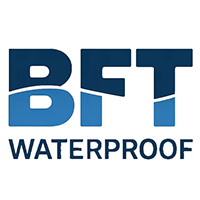In modern construction projects, waterproofing has always been a crucial concern. PVC waterproofing membrane has emerged as an outstanding option due to its numerous advantages.
PVC waterproofing membrane is mainly made from polyvinyl chloride resin with the addition of various additives and is produced through advanced manufacturing processes into sheet-like waterproof materials. One of its remarkable features is its excellent waterproof performance. Its dense structure can effectively prevent the penetration of water. Whether it’s facing the impact of rain or the erosion of groundwater, it can firmly safeguard the interior of buildings to keep them dry.
In terms of physical properties, PVC waterproofing membrane has good flexibility. This enables it to fit easily on complex building substrate surfaces, such as the internal and external corners of rooftops and the roots of parapet walls. It won’t crack or leak even when the substrate undergoes slight deformations. Moreover, its weather resistance is outstanding. It can endure harsh climatic conditions like long-term exposure to sunlight and repeated temperature changes for a long time, thus having a relatively long service life and reducing the trouble and cost of frequent replacement of waterproof materials.
When it comes to construction, PVC waterproofing membrane also shows great convenience. It can be installed using multiple methods, such as loose laying and full adhesion. Construction workers can choose flexibly according to the actual project situation. Meanwhile, the splicing between the membranes can be achieved through hot air welding and other means to form a continuous waterproof layer, further enhancing the overall waterproof effect.
In addition, PVC waterproofing membrane is environmentally friendly. It complies with relevant environmental protection standards during production and use and won’t cause harm to the environment or human health. In conclusion, PVC waterproofing membrane, with its good waterproofing ability, excellent flexibility, strong weather resistance, convenient construction, and environmental friendliness, plays an important role in building waterproofing projects and safeguards the construction of high-quality waterproof buildings.
